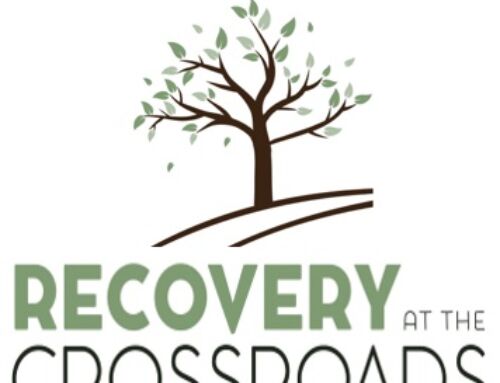Making the decision to seek treatment for a substance use disorder is one of the most daunting things a person can go through. Fear of how your employer might react to the news that you’re going to rehab or even the idea of telling them may be enough to prevent you from taking that step. However, when it comes to your long-term health, well-being and employability, getting treatment for addiction is essential.
Keep reading to find out more about the legal protections that are in place to help you in this situation. Plus, you’ll discover advice about approaching your employer and returning to work.
Fear of Attending Rehab Is Understandable
First off, it’s important to understand that your fear of seeking treatment is entirely valid, but that doesn’t mean it’s founded in reality. Sure, making big changes in your life takes effort and requires hard work and dedication. However, the stigma that used to exist around addiction is disappearing as the condition is being understood as a disease, not a question of morality or weakness.
Remember that substance abuse takes a serious toll on your body and mind and prevents you from reaching your full potential. Confronting your fear head-on and doing the work necessary to get sober is always worth it in the long run. That said, the idea of leaving your job for 30 to 90 days seems impossible for many people. Going without pay and worrying that you might lose your job are understandable fears.
But can your employer fire you for going to rehab? Let’s take a look at whether federal law could safeguard your ability to keep your job.
Federal Acts That Could Protect You
Depending on your specific circumstances at work, federal law might protect you from losing your job as a result of going to rehab. Keep in mind that the size of the company you work for plays a major role in whether certain federal acts apply to your employment.
Be sure to learn about your rights and check the rules for the state where you live in addition to learning the ins and outs of federal law.
Family and Medical Leave Act, 1993
The FMLA entitles American employees to 12 weeks of unpaid leave per calendar year, provided they meet the eligibility criteria. However, the fact that addiction is a diagnosable medical illness inherently means your job security is protected. Provided your company has more than 50 employees, there’s a good chance the FMLA will apply to you.
Other eligibility criteria include:
- Your employer must be covered.
- You must have worked for your employer continuously for more than 12 months.
- You must have worked a minimum of 1,250 hours over the past 12 months.
- Your employer must have 50 employees within 70 miles of one another.
Americans With Disabilities Act, 1990
The ADA is designed to protect people with an eligible disability, which is defined as a mental or physical impairment that limits a crucial life activity. These types of life activities include working regularly, cooking, cleaning and taking care of basic hygiene. Substance abuse disorders are recognized as a disability under this definition, so you may be protected under the ADA.
The ADA applies to all companies with 15 or more employees and any local or state government entities.
That said, if an employee is still using drugs, there’s a chance they can be terminated. This applies if you have a clause in your contract that stipulates you can be fired for using illegal drugs. What’s more, the merits of each case are determined on an individual basis.
The Health Insurance Portability and Accountability Act, 1996
HIPAA legislation means employers generally can’t use medical information in a way that discriminates against you. If you’re qualified to do your job and you haven’t breached your contract, you can’t be treated unfavorably because you require medical attention for a health condition.
This act also means your employer isn’t permitted to share medical information with others, including treatment for substance use disorders. Nonetheless, employers are permitted to test for drugs and can discipline or fire an employee in breach of their rules.
The Rehabilitation Act, 1973
Any entity that receives federal grants, aid or contracts is governed by the Rehabilitation Act. This means an eligible employer isn’t permitted to fire an employee for seeking treatment or being in recovery for addiction. There is an exception to this rule if the employee’s condition prevents them from safely or competently carrying out their job duties.
How To Speak to Your Employer About Going to Rehab
Before beginning addiction treatment program at a rehab facility, it’s important to consider if you want to inform your employer. If you’re eligible for FMLA leave, your confidentiality is protected under the act. There’s no need to let anyone know why you’re taking a leave of absence.
However, if you’ve been at your workplace for a long time, you have a trusting, close relationship with your employer and your output at work hasn’t drastically decreased, being honest might be a better idea than you’d expect. In the modern world, people are becoming increasingly understanding about mental and behavioral health issues.
Instead of giving explicit details about the ins and outs of your situation, you might opt to let them know you’re taking a leave of absence for personal reasons and plan on dealing with them so you can be a better employee. Your line manager might appreciate the honesty.
Also, make sure all your duties are covered and the colleagues taking over your role for the period of absence know everything they need to know about how to do the job.
Returning to Work
Once you’ve finished residential rehab, you might need to meet the requirements of a Return to Work Agreement. Provided you meet the requirements, your employer must reinstate you to your previous position and not treat you any differently.
Begin Your Recovery Journey Today
If you’d like more advice about how to approach your employer with the news that you’re going to rehab, call Recovery at the Crossroads today at (888) 342-3881.




